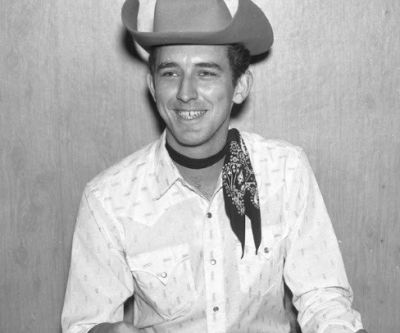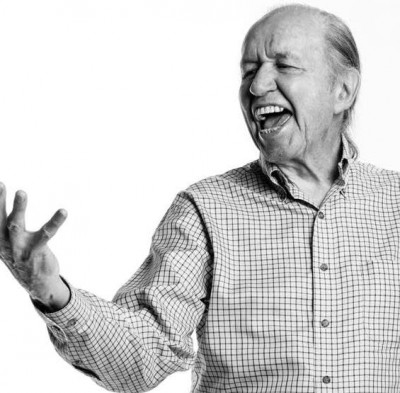December 20, 2018
Tuesday
8:00 p.m.
Minneapolis, MN
Test schedule
A live performance with Robin and Linda Williams at the Cedar Cultural Center
May 20, 2018
Sunday
3:00 p.m.
Lexington, MA
Lexington, MA
A live performance at the Saenger Theatre
April 10, 2018
Tuesday
8:00 p.m.
Tulsa, OK
Tulsa, OK
A live performance at the Brady Theater
March 17, 2018
Saturday
8:00 p.m.
Long Beach, CA
Long Beach, CA
A live performance at the Carpenter Performing Arts Center
March 15, 2018
Thursday
7:00 p.m.
Mobile, AL
Mobile, AL
A live performance at the Saenger Theatre
“Sonnet 43: How do I love thee, let me count the ways” by Elizabeth Barrett Browning. Public domain. (buy now)
How do I love thee? Let me count the ways.
I love thee to the depth and breadth and height
My soul can reach, when feeling out of sight
For the ends of being and ideal grace.
I love thee to the level of every day’s
Most quiet need, by sun and candle-light.
I love thee freely, as men strive for right.
I love thee purely, as they turn from praise.
I love thee with the passion put to use
In my old griefs, and with my childhood’s faith.
I love thee with a love I seemed to lose
With my lost saints. I love thee with the breath,
Smiles, tears, of all my life; and, if God choose,
I shall but love thee better after death.
It’s the anniversary of one of the most legendary moments in modern art. On this day in 1913, The Rite of Spring had its premiere at the Théâtre des Champs- Élysées in Paris, a ballet with choreography by Vaslav Nijinsky and music by Igor Stravinsky.
Igor Stravinsky got the idea for the ballet, which would be about a pagan ritual in which a virgin is sacrificed to the gods of spring by dancing herself to death. He drew on dozens of Russian folk songs for the melodies, but instead of using those melodies in any conventional way, he chopped them up and threw them together into a dissonant collage of sounds with a relentless staccato rhythm.
It was unseasonably hot on this evening in 1913, so it’s possible that the audience was more restless than usual. The audience sat quietly through the first several minutes of the piece, but when the music suddenly turned harsh and dissonant, people in the audience began to shout at the stage.
Fights broke out between the audience members. People who were enjoying the music attacked those who were booing. People spat in each other’s faces. Between the first and the second act, the police were called to remove hecklers, but the disruption continued. Stravinsky was so upset by the response that he left his seat in disgust. Nijinsky stood on a chair in the wings shouting out the counts to the dancers who couldn’t hear the music over all of the booing. The piece lasted only 33 minutes, but by the end, the audience had nearly erupted into a riot.
Almost overnight, Stravinsky became one of the most celebrate artists in the world. A year after its premier, The Rite of Spring was performed without dancing, and when it was over, members of the audience carried Stravinsky out on their shoulders.
It’s the birthday of comedian Bob Hope (1903), born Leslie Townes Hope in Eltham, near London. His family moved to the United States when he was four years old, and he grew up in Cleveland, Ohio. His first successful show-biz venture came at the age of 10, when he won a Charlie Chaplin look-alike contest. By 1940, after working in vaudeville, Broadway, and radio, he was one of America’s most popular comedians. His comedy was verbal, not physical, and he usually played unsympathetic characters that the audience could feel superior to.
He never won an Oscar for his acting — “Oscar Night at my house is called Passover,” he once quipped — but the Academy nevertheless honored him five times, with two honorary Oscars, two special awards, and a Jean Hersholt Humanitarian Award. The Guinness Book of World Records named him the most honored entertainer in the world, with 2,000 awards and citations, including 54 honorary doctorates and a knighthood from his native England.
In 1941, he performed his first show for soldiers, a group of airmen stationed in March Field, California. It was the beginning of nearly 60 years of shows at military bases at home and abroad. Congress unanimously passed Resolution 75 in 1997 to make him the nation’s first Honorary Veteran, and he considered this his highest achievement.
He wasn’t universally adored, however. A few days after Hope’s death, author and journalist Christopher Hitchens called him “paralyzingly, painfully, hopelessly unfunny” in Slate. He skewered the comedian and his fans, saying, “This is comedy for people who have no sense of humor and who come determined to be entertained and laugh to show that they ‘get it.'” Hitchens closed his article by saying, “Hope was a fool, and nearly a clown, but he was never even remotely a comedian.”
Bob Hope died in 2003, two months after his 100th birthday.
It’s the birthday of German philosopher Oswald Spengler (1880) (books by this author), born in Blankenburg, Germany. He studied the history of civilizations; his theory was they all undergo an organic blossoming and withering over the course of 1,000 to 1,200 years, and that, by studying the past, it was possible to predict the future of all civilizations. “Each culture,” he wrote, “has its own new possibilities of self-expression which arise, ripen, decay and never return.”
He put his theory forward in his book The Decline of the West (1918), in which he asked, “Is there, beyond all the casual and incalculable elements of the separate elements of the separate events, something that we may call a metaphysical structure of historic humanity, something that is essentially independent of the outward forms — social, spiritual, and political — which we see so clearly? … Does world-history present to the seeing eye certain grand traits, again and again, with sufficient constancy to justify certain conclusions?” He examined six cultures — Egyptian, Chinese, Hindu, Greco-Roman, Magian (mostly Arabic), and Western — and he believed that Western civilization had already experienced its creative flowering; it was in a period of reflection and material comfort, and that it had, at most, 200 more years. He believed that you could no more revive a dying civilization than you could bring a dead flower back to life.
The book received a lot of attention, and mixed reviews; it formed the basis for social cycle theory. Spengler’s work influenced a diverse assortment of later writers and scholars, including the Beat poets, Fitzgerald (who called himself an “American Spenglerian”), Joseph Campbell, Henry Kissinger, and Malcolm X.
In The Decline of the West, he wrote: “The press to-day is an army with carefully organized arms and branches, with journalists as officers, and readers as soldiers. But here, as in every army, the soldier obeys blindly, and war-aims and operation-plans change without his knowledge. The reader neither knows, nor is allowed to know, the purposes for which he is used, nor even the role that he is to play. A more appalling caricature of freedom of thought cannot be imagined. Formerly a man did not dare to think freely. Now he dares, but cannot; his will to think is only a willingness to think to order, and this is what he feels as his liberty.”
It’s the birthday of the writer known as Max Brand (books by this author), born Frederick Faust in Seattle, Washington (1892). Brand was one of several pseudonyms he used over a career that produced thrillers, love stories, and melodramas, but it was the Western he became famous for, even though he knew nothing firsthand about frontier life. He is best known for his novel Destry Rides Again (1930), which was later made into a movie staring Marlene Dietrich and James Stewart.
During the Great Depression, he was one of the highest-paid pulp fiction writers in America, earning five cents a word. He managed to finish a full-length novel every week, making about $100,000 a year at that rate. As time went by he was ashamed of his novels, and he only used his real name to publish poems. The pseudonyms were originally born of practicality; after WWI he was afraid that Americans wouldn’t want to read books by a person with a German last name. When World War II began, he called in favors to get himself posted as a correspondent for Harper’s, hoping to finally serve as he’d dreamed of doing years before. He was sent to the front lines, and he died of a shrapnel wound in Italy among soldiers who’d grown up reading his stories.






